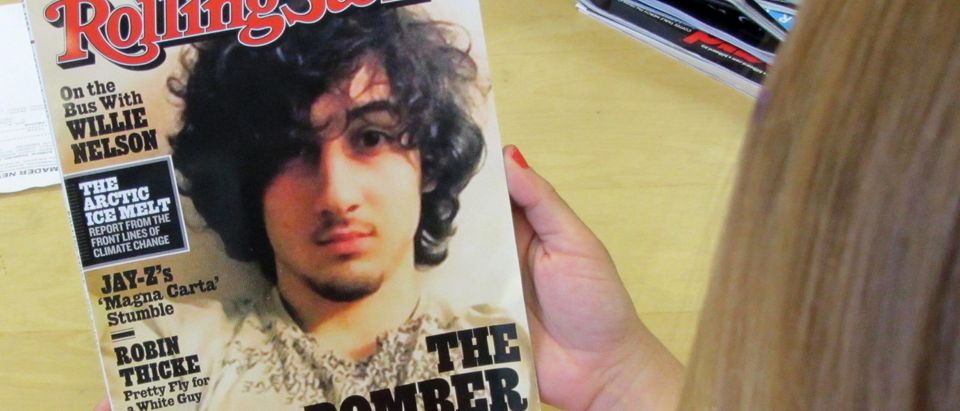Rolling Stone, once considered to be an indispensable “counter-culture bible” for beatniks and pre-millennial hipsters, is no longer the bastion of progressive thought it once was. Following a series of heavy missteps over the past few years and a drought of hard-hitting journalistic content, the home of Hunter S. Thompson’s “gonzo journalism” is a mockery of its former self.
The almost 50-year-old magazine has been largely supplanted by online media, which it has refused to properly embrace due to the stubbornness of its founder, Jann S. Wenner, and his death grip of outdated publishing models even as print advertising revenues dry up. As other companies ramp up their media presence online through videos and breaking news, Rolling Stone continues to focus on long-form journalism. Readers don’t head to it for up-to-date stories.
Rolling Stone has been unable to aggressively expand as much as others because of Wenner’s costly mistakes in the previous decade, which include his sale of a 50 percent stake in Us Weekly to the Walt Disney Company for $40 million, only to buy it back for a steep $300 million five years later. In June, Wenner sold Us Weekly to American Media Inc. for a reported $100 million, leaving Rolling Stone’s holdings significantly diminished.
Rolling Stone’s descent into irrelevance and mounting financial woes isn’t helped by bad press stemming from the expensive lawsuit that came from its reckless, and unvetted publication of a highly-publicized rape hoax. The snowballing problems have taken a huge financial toll on the company’s once-lucrative operations.
Following a poorly-researched article titled “A Rape on Campus” about a gang rape that never happened at the University of Virginia, the publication was sued by the fraternity involved, Phi Kappa Psi. Rolling Stone agreed to pay $1.65 million to settle the lawsuit, in addition to $1 million to Nicole Eramo, a UVA associate dean who was also smeared in the article.
Writer Cathy Young described the story as “feminist agitprop and rape-hoax denialism” that only worsened hysteria about sexual assaults on campus. As Young pointed out in her 2014 article, the story’s writer, Sabrina Rubin Erdely, may not have even interviewed any of the subject’s friends before penning the piece. Marred by a lack of editorial oversight and fact-checking, the story was riddled with problems.
Even after the magazine settled with Eramo, Jann Wenner went on CBS to defend the indefensible article.
“I mean, we made a really big mistake there. The underlying story and reporting was all accurate. It was an important issue, rape on campus. Nothing about what we said about Title Nine enforcement has ever been discredited. We were right about that. Unfortunately, the example we used turned out to be not true, and on that mistake, we got hung,” he said.
But the magazine’s problems didn’t start there. Long considered to be a tastemaker for progressive politics, even its own readers were appalled when its July 2013 cover story featured the glamorous photograph of Dzhokhar Tsarnaev, one of the two men who perpetrated the terrorist bombing of the Boston Marathon. It bore the title “The Bomber.”
Despite calling him a “monster” in the subtitle along with a story exploring his horrific motives, the cover bestowed Tsarnaev rock star status—essentially serving as a free recruitment tool for ISIS and other terrorist organizations that prey on young, disenfranchised men seeking fame (or infamy).
Rolling Stone was condemned by Thomas Menino, who was then mayor of Boston, for rewarding the terrorist with celebrity treatment. It faced widespread condemnation from celebrities and users on social media, and two national pharmacy chains, CVS and Walgreens, refused to carry the issue. The magazine defended its actions, stating it was in line with its tradition of “serious and thoughtful coverage” regarding political events, per USA Today.
The magazine’s senior editor, Christian Hoard, appeared unmoved by the criticism, and asked flippantly on Twitter: “I guess we should have drawn a dick on Dzhokhar’s face or something?” He missed the point entirely.
Having fallen from grace, Rolling Stone is now worth a fraction of its former value. Wenner told the New York Times that he’s giving up the company and putting up his controlling stake for sale with the help of his son, Gus, who serves as its chief operating officer. “I love my job, I enjoy it, I’ve enjoyed it for a long time,” he said, adding that it was “just the smart thing to do.”
The move will follow the Wenners’ sale of a 49 percent stake in Rolling Stone to Singapore-based music technology company BandLab Technologies in 2016.
The new announcement comes in the wake of aggressive trimming of the company’s assets. In July, Rolling Stone parent company Wenner Media closed the San Francisco office of its video game publication Glixel. Originally touted as a “lifeline for gamers,” the operation was located at the heart of Silicon Valley, the home of many prominent video game studios. The remainder of its staff are in New York City, where they continue to post outdated stories that already ran their course days earlier on competing websites.
As previously noted, the Wenners recently sold the company’s two other magazines, Us Weekly and Men’s Journal to American Media Inc., which publishes the National Enquirer. Although the Wenners have not named any potential buyers, The New York Times speculates that the publisher may pick up the controlling stock in Rolling Stone—but BandLab’s 49 percent stake may complicate any plans they have moving forward.
Ian Miles Cheong is a journalist and outspoken media critic. You can reach him through social media at @stillgray on Twitter and on Facebook.


